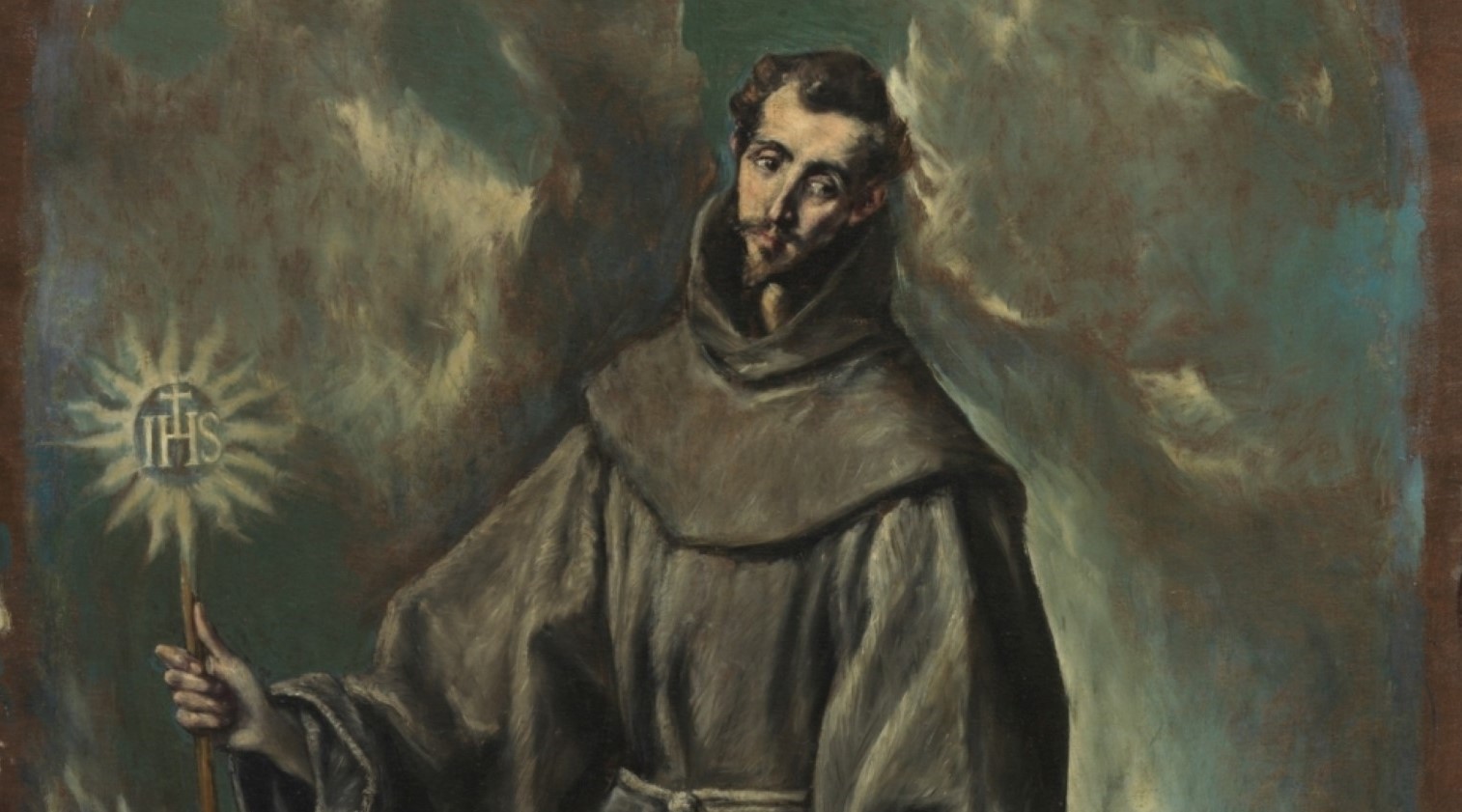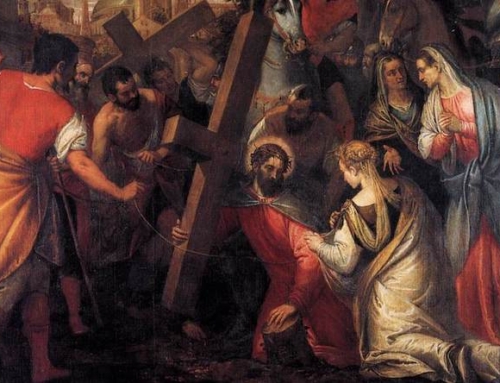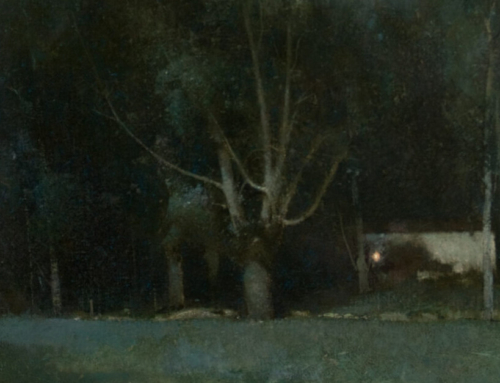This is part of a series entitled, “Preaching: Feeding Fellow Beggars.” Read the series introduction here. To see other posts in the series, click here.
Bernardine’s voice filled the church like cathedral bells as he exclaimed: “O you who are cold and dead, go to the fount of life!”
Stephen thought this line was spoken directly to him. Cold and dead? Why did that line make him so insecure? Stephen was a successful man, with the possibility for more success right before him.
Stephen felt himself very different from the people sitting in the pews around him. For starters, he did not usually think much about God. He was a Catholic, of course, as everyone else in the town, but that did not mean much to him. Stephen was a merchant, which meant there was always something pressing on his mind. He did not waste precious time thinking about heaven and angels and God. The only reason Stephen went to church that day was because he wanted to see Bernardine.
Like all the citizens of the Republic of Siena, Stephen knew that Bernardine had made quite a name for himself. The popular title traveled everywhere with him: The Apostle of Italy. The word was that his preaching apostolate had been foretold by the great Vincent Ferrer himself, who trusted that Bernardine’s preaching would revive the faith of Italy. Bernardine, they said, could elevate the devotion of the holiest saint, and inspire in the sinner the sweetest tears of repentance.
Stephen was skeptical of all this, but he thought it fitting that Bernardine was doing great things. He had known the preacher in their youth. In 1400, when the Black Plague ripped through Siena, Stephen’s family was not spared. It got his parents, and he barely made it out alive. He remembered vividly those weeks in the hospital, those weeks of perpetual chill when it seemed that any breath could be his last. Bernardine had nursed the dying Stephen. They were both young men—Bernardine was barely 20—and yet the caretaker had something peculiar about him. There was something almost superhuman in his capacity for tenderness. His presence was strength: for some, the strength to recover; for others, the strength to die with courage. He was in charge of the whole hospital, and he seemed to be everywhere at once. When he was anywhere, he was really there. If he was caring for you, it was like time had stopped. He was completely present. Stephen remembered that, and that memory spurred him into the church.
A lot had changed in the decade since the plague. Stephen was now a successful merchant, a man with savvy and a great capacity for getting things done. He had a hopeful political future. Bernardine had changed, too. In the hospital, there were whispers of people calling him a saint. Now, they were shouting it. Both men had come a long way. Many people had not escaped the bitter darkness of the Black Plague. Stephen and Bernardine made it out.
At least Stephen thought he made it out.
Bernardine had called him cold and dead. How could that be? They had felt the frigid cold together; they had endured the wave of death side by side. Now, Bernardine was grouping Stephen with the dead ones, with those who never made it out of that hospital.
He went back to Bernardine’s striking line: “You who are cold and dead.”
Am I cold? Am I dead?
He thought about how he valued money and esteem. They had the power to make a man constantly desire more of them but no real power to satisfy. But, as things stood, did he really want satisfaction?
Late in his youth Stephen grew confident in his assessment of the world. There was no need to aim for all the lofty desires of a boy. A boy believes in a place where he is perfectly happy, in a love that leaves nothing to be desired. No, that was not realistic. Life was painful and hard. A man realized that. Stephen did not expect to gain the hopes of an idealistic child—he expected to gain only what a man had in his power to take. He had taken the things of the world, but Bernardine saw them for what they were: lifeless. Bernardine saw Stephen for what he was: dead. Stephen was a corpse running after phantoms.
This line of thinking was not pleasant. Stephen had kept these thoughts at arms length for years. And he realized, most painfully of all, that he knew not where to go. He saw right through the shallow puddle that was his life, and he stood still, paralyzed.
Bernardine called him to a fount of life. But Stephen was not thirsty. These years of drought, when he had learned to get by with dirty water, when he had learned to fight off despair by constantly striving forward into other unsatisfying, poisonous springs, had left him with a new appetite. Stephen did not expect a deep satisfaction from anything, and he doubted that it was even possible. Stephen stayed warm by the heat of tiny fires, and when one went out, he would light another. With a single sentence, Bernardine had just taken his puny flame from him, and now the frigid cold was back. He was back in the hospital. Any breath could be his last.
And then, almost in a whisper, with a tone that suggested he knew the power in what he was about to say, Bernardine uttered his Savior’s name:
“Jesus Christ.”
The name struck Stephen’s ears like cold water on a sleeper. The name was warmth, and not some meager fire like the ones he had found in earthly goods. No, this man, Jesus Christ, was more real than that. And Bernardine, who had nursed Stephen to life all those years ago, had just used the Holy Name of Jesus to resuscitate Stephen who was drifting into the abyss.
And Stephen intuited in Bernardine’s very utterance an ardent love for the man to whom the name belonged. It was a love that called Stephen back to his youthful longing for a perfect world, for a world shot through with goodness. Now, Stephen ventured to hope that this world was real. He wondered if there was a possibility of true satisfaction in Jesus Christ.
A fire was kindled inside Stephen’s darkened heart. His spirit took in a deep breath, and he breathed the air of life.
Saint Bernardine of Siena (1380-1444) was one of the 15th century’s most dynamic preachers. Called the Apostle of Italy, Bernardine stirred up the faith of Italians and promoted devotion to the Holy Name of Jesus. The story above was an imagined encounter in which Bernardine’s preaching prompted a powerful movement of the Holy Spirit in a citizen of Bernardine’s hometown.
✠
Image: El Greco, San Bernardino







